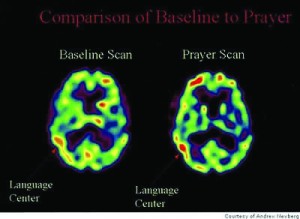Secular Meditation
Chapters 22, 23 and 24 will deal with types of passive contemplation that have appeared in the secular world and among religious people mainly in the last 50 years. These types of passive prayer are usually called ‘meditation.’ In this chapter and the following two chapters we will discuss this meditation from the secular, Buddhist and Christian angles.
Some years ago the leading article in ‘Time Magazine’ was on ‘Meditation’. I don’t usually waste time in reading ‘Time’, but I felt that I should read this article. In the article there were snippets on meditation from many different sources. There was very little reference to Christian meditation. The authors claimed that up to 10 million Americans were practising some form of meditation. Meditation is being offered in ‘schools, hospitals, law firms, government buildings, corporate offices and prisons’. There were pictures of students, lawyers and prisoners, meditating, sitting cross-legged on
the ground.
Meditation is being recommended by doctors to reduce stress. Doctors are embracing it because there is much scientific evidence that it has a therapeutic effect. Many scientific studies have been done that show conclusively its benefits for both bodily and mental health. ‘For thirty years meditation research has told us that it works beautifully as an antidote to stress’ (Daniel Goleman). Since stress can contribute to much mental and physical illness, meditation, by reducing stress, promotes health of mind and body.
Hilary Clinton talks about it; Al Gore and his wife were meditators. Gore says, ‘we both believe in regular prayer and we often pray together. But meditation, as distinct from prayer, I highly recommend it’. William Johnston, in his book, ‘Silent Music’, tells us that businessmen in Japan have been practising meditation for generations so that they might have extra energy in the competitive world of business. They have practised secular meditation long before it was thought of in the Western world.
Before I read the article in ‘Time’ I assumed that it would be about religious meditation, meditation as a way of uniting oneself to God. In our Christian tradition meditation has always been understood as a method of prayer. Up to about 50 years ago ‘meditation’ was distinguished from ‘contemplation’ by some authorities, such as the Carmelite saints. ‘Meditation’ was associated with discursive thinking about religious truths. ‘Contemplation’ consisted more in relishing the truth, than in thinking about it. In ‘contemplation’ discursive thinking was abandoned and one remained simply in God’s presence.
In modern Christian spirituality ‘meditation’, and ‘contemplation’ can have a variety of meanings. When I meet these two terms in my reading I always have to ask myself, what do they mean in
this context?
But the ‘meditation’, practised by millions of people today is quite different from ‘meditation’ as understood in Christian spirituality. Firstly, it is not necessarily a religious exercise. People can practise this new ‘meditation’, without even believing in God. It is not even tied up with any definite religion. Many of the meditation techniques used have been taken over from Hinduism and Buddhism, but meditators, for the most part, do not subscribe to these religions. They use Eastern techniques, without embracing the religious and moral values of Hinduism and Buddhism. In other words meditation in the Western world is largely secular. It usually takes no account of God, and is not necessarily oriented to leading a better moral life. Its primary orientation is to bodily and mental health. One’s improved health might be used for either good or evil ends.
Secondly it is to be noted that ‘meditation’ today often refers to using techniques that suppress all discursive thinking. There are very many forms of secular meditation, but nearly all of them serve to suspend thinking about things. All forms of meditation tend to introduce the meditator into some measure of inner peace and tranquillity. They use techniques that lead to deep relaxation.
Rather than thinking about something the meditator focuses attention on something, without analysing it. When we think about something we break the object into its various parts. In meditation, however, we focus on something, without passing a series of judgements on it. Some meditators, e. g. in T.M. focus on saying the mantra (word); this is a common technique of meditation. Others focus on their breathing. Some focus on an image or on the ‘third eye’ (a point between the two eyes). As we said already focusing on something, without analysing it, leads us into deep inner silence.
Science has proved that, during meditation, the brain operates differently from when one is thinking. Meditation has been compared to gasoline; anyone can use it and it can be detached from Buddhism and Hinduism.
How Does One Evaluate Secular Meditation?
Its primary effect seems to be better health of mind and body. Meditators seem to have greater capacity to deal with the stress of modern life. It brings a higher quality of life to those who practise it. It is naturally good and promotes physical wellbeing. All the scientific evidence suggests that meditation is an important therapeutic tool for preventing and curing many illnesses. Medical experts reckon that 60% of illness is psychosomatic and caused by stress. Meditation, because it reduces stress, can contribute to preventing and curing many mental and bodily illnesses. Just as stress can be a contributory factor to a whole range of illnesses so likewise meditation can contribute to the cure or prevention of a wide range of physical and mental disorders.
Doubtless the improved health that one enjoys, due to meditation, can be used for either good or bad purposes. In the sight of God the value of meditation will be determined by whether we use it to promote his kingdom or not. Jesus came to bring us life in abundance. We only have this abundant life when we use all our resources of nature and grace in the service of God. The motivation and orientation of our meditation will determine its true value.
By way of conclusion let us ask, what can people devoted to the spiritual journey learn from secular meditation? We can learn to lay a good natural base for our spiritual life. Grace builds on nature. Therefore, we must be first integrated at the level of nature before we can serve God fully. It will be easier for the Spirit to operate in us if mind and heart are integrated. We have a duty as Christians to take possession of all our potential and put it at the service of love.



 Entries(RSS)
Entries(RSS)